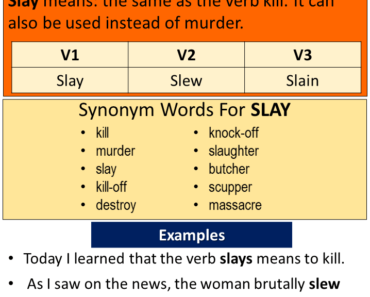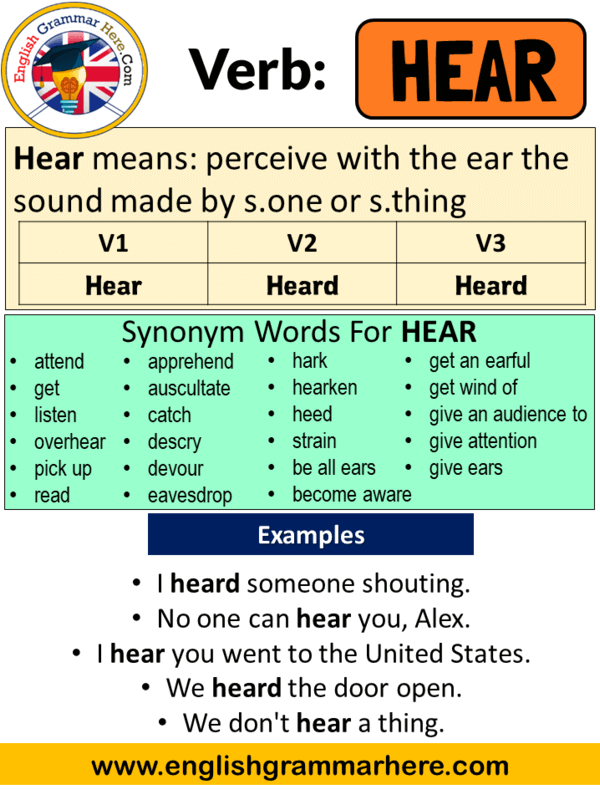
You haven't heard the last of this! → ¡ aquí no se acaba esto! That's the first I've heard of it → no tenía ni idea, es la primera noticia que tengo The first I heard of it was when → lo primero que supe al respecto fue cuando. Have you heard anything of or from him since he left? → ¿has sabido algo or has tenido noticias de él desde que se fue? I haven't heard yet whether I've passed → aún no sé si he aprobado I hear you've been ill → me he enterado de que or he oído decir que has estado enfermo I heard you're going away → me he enterado de que te vas Where did you hear that? → ¿quién te ha dicho eso? I hear bad reports of him → no me hablan bien de él I waited to hear the result → me quedé esperando para enterarme del resultado What's this I hear about you getting married? → ¿qué es eso que he oído de que te vas a casar?įrom what I hear, she hasn't long to live → por lo que he oído parece que le queda poco tiempo de vida Have you heard the news? → ¿has oído la noticia?, ¿te has enterado de la noticia?
My friends had never gone to the USA either.Collins COBUILD English Usage © HarperCollins Publishers 1992, 2004, 2011, 2012 hear. Samantha hadn’t had time to explain her side of the story. I had not eaten at that restaurant before today. We’d just gotten home, when we heard the blast outside. It’d happened so quickly, I didn’t notice. After I’d used the phone, I paid the bill. By the time he phoned her, she had found someone new. Before I knew it, she had run out the door. After she had moved out, I found her notes. I didn’t say anything until she had finished talking. The girls _ in weeks? That’s why they _ so much afterwards. You _ them to go to the beach, hadn’t you? (forbid). How many fish _ the boys _ by the time it started raining? (catch). _ Sara ever _to London by herself before then? (drive).  Until Anne _ Mark, she _ never _in love. The concert _ already _when we _ the stadium.
Until Anne _ Mark, she _ never _in love. The concert _ already _when we _ the stadium. HEAR PAST TENSE MOVIE
Michael didn’t want to see the movie because he _ the book yet. _you _ the news before you saw it on TV? (hear). After the company _Joe, he began to work on his first project. Had you known about the contract they signed? (know). By the time Simone arrived, the police had already left. After Loren had turned on the alarm, she locked the door. It may look strange, but it is correct.įill in the correct form of the past perfect simple or past simple as in the examples. It means that even though I ate enough, I wanted dessert after that. The first had is the auxiliary (or helping) verb and the second had is the V3 (or past participle) of the main verb to have. I had had enough to eat but I wanted dessert anyway. Note: Had Had – A verb combination that often causes confusion in the past perfect simple is had had. Everyone had gone home by the time Doris had got to the party. By the time Doris got to the party, everyone had gone home. Note: The order of phrases may be switched, but the meaning will stay the same. There are quite a few irregular verbs in English though. walk > walk ed / study > stud ied / stop > stop ped / create > creat ed. The V3 (past participle) form of a regular verb looks just like a regular verb in the past simple: The past perfect simple tense is formed by using the auxiliary verb had together with the V3 (past participle). (First he knew about it, then others knew about it) (First the painter left and then I washed the floor.) I washed the floor when the painter had gone. (First she finished her work and then she went to eat lunch.)  After Sofie had finished her work, she went to lunch. Sometimes the past perfect simple is used on its own and the action that took place afterwards is understood. The past simple to refer to the action that happened second or later. The past perfect simple, to refer to the action that happened first or earlier. In many cases a complete sentence is written in two parts with two different tenses:
After Sofie had finished her work, she went to lunch. Sometimes the past perfect simple is used on its own and the action that took place afterwards is understood. The past simple to refer to the action that happened second or later. The past perfect simple, to refer to the action that happened first or earlier. In many cases a complete sentence is written in two parts with two different tenses: 

The past perfect simple is used to describe one action that happened before another action in the past.








 0 kommentar(er)
0 kommentar(er)
